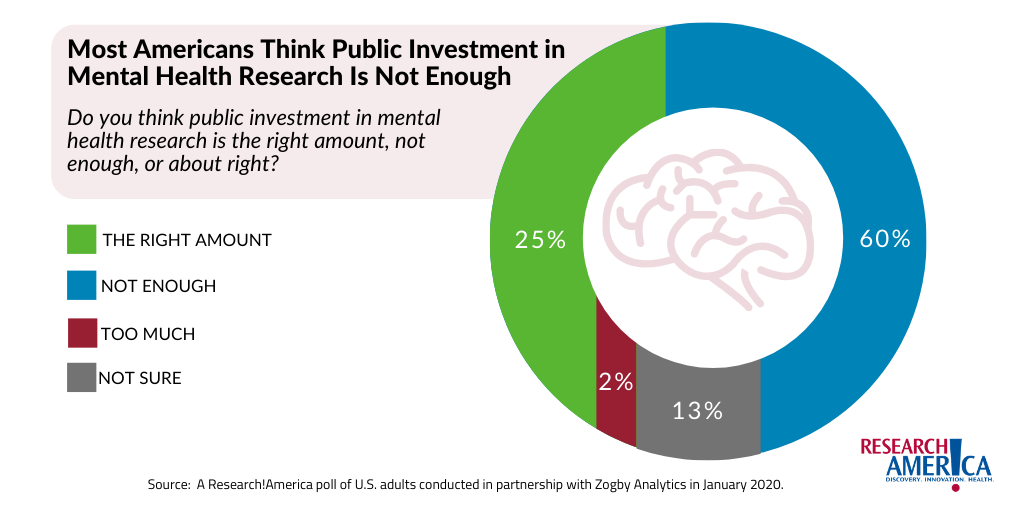The Impact on Mental Health during a Pandemic

Each year, millions of Americans face the reality of living with a mental illness. Every May, National Mental Health Awareness month raises awareness about mental illness and educates the public about mental health. The goal is to fight stigma, provide support, educate the public, encourage research, and advocate for policies that support people with mental illness and their families. While one in five people will experience a mental illness during their lifetime, everyone faces challenges in life that can impact their mental health. As we observe Mental Health Month this year, we do so during an unprecedented and stressful time. The COVID-19 pandemic and resulting economic downturn have affected many people’s mental health and created new barriers for people already suffering from mental illness and substance use disorders.
 A public opinion survey conducted March 25-30, 2020, by the Kaiser Family Foundation found that 47% of those sheltering in place reported negative mental health effects related to coronavirus. Furthermore, the survey and corresponding report also indicated that mental illness and substance use among adolescents may be exacerbated by the pandemic with many unable to access key mental health services through their schools. The survey also suggests mental health impacts including increased depression, anxiety, distress, loneliness, and low self-esteem for those experiencing job loss or income insecurity and frontline healthcare workers among other groups.
A public opinion survey conducted March 25-30, 2020, by the Kaiser Family Foundation found that 47% of those sheltering in place reported negative mental health effects related to coronavirus. Furthermore, the survey and corresponding report also indicated that mental illness and substance use among adolescents may be exacerbated by the pandemic with many unable to access key mental health services through their schools. The survey also suggests mental health impacts including increased depression, anxiety, distress, loneliness, and low self-esteem for those experiencing job loss or income insecurity and frontline healthcare workers among other groups.
Research!America has commissioned numerous survey questions over the years to determine how Americans feel about the state of mental health in the United States as well as their support for investment in mental health research. The findings reveal that mental health is of increasing concern to Americans and a majority supports additional federally-funded research in this area. While this public opinion research predates the novel coronavirus pandemic, it suggests potential public support for further research and public health strategies dedicated to mitigating the mental health impact of COVID-19.
In our 2020 commissioned survey, 60% of respondents said that current public investment in mental health research is not enough. This is a 9% increase, up from 51% in 2018.

In addition, trend data dating back to 2012, the first time mental time was listed as a response option, show that, generally, public concern about mental health has increased in recent years, with 13% of respondents in 2020 saying it is the single most important health issue facing the nation. This is a 10% increase from 3% in 2012.

For additional information and resources about this issue, the Kaiser Family Foundation published an article evaluating the implications of COVID-19 for mental health and substance use. Additionally, the National Alliance on Mental Illness (NAMI) has created a guide for those seeking information regarding the connection between COVID-19 and people affected by mental illness, their caregivers and loved ones.
For more information on maintaining mental health during this time, refer to this toolkit developed by the American Society for Suicide Prevention to support those struggling with mental health as well as guidance around self-care and suicide prevention. You may also find it helpful to review Research!America’s fact sheets on Depression, Suicide, and Substance Use Disorder to stay informed.




